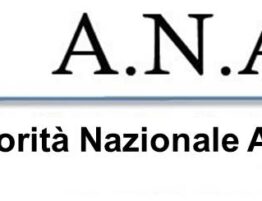
In recent weeks we have witnessed the heated debate on the work of the Italian Commission for Social Affairs regarding the rules concerning informed consent and advance directives in health treatments (also commonly known as “living will”).
Advance directive is the document containing the declarations of will by means of which a person decides in advance certain conditions with regard to treatment which the person intends to undergo when he or she will no longer be of sound mind and therefore unable to express his/her consent.
Despite the attention towards this subject also by the media, as of today the Italian legal system does not have a law regulating the subject.
As professionals, the questions that we are being asked more and more often are: what solutions are there, if any, in the absence of a law regulating the matter? Do the advance declarations I have issued to the Notary have legal value in the absence of a law?
As in many other areas, case-law has stepped in seeking to remedy the regulatory gap, limiting the risk of ineffectiveness of such declaration. There is a ruling which ‒even though not recent‒ offers more than others an innovative solution which even today indicates ‒in the absence of a law‒ a viable legal option.
It is a ruling issued by the Court of Modena on 5 November 2008. By means of such decision the Court ruled that: “the person suffering from serious disease, who aims to protect in advance his/her dissent to invasive therapeutic treatments in the event of loss of health, may call upon the judicial authority to appoint a support administrator who will implement that will”.
Therefore the Court of Modena has identified the institute of support administration as the instrument to grant concrete legal effects to the indication of will regarding health treatments, despite the legal vacuum.
The institute of support administration, as laid down by the Italian legal system, is available to those who are (either permanently or temporarily) unable to meet their own needs, offering an instrument for assistance which sacrifices as little as possible the ability to act.
Under Article 408, paragraph II of the Italian Civil Code, the support administrator can also be designated by the same beneficiary, in the expectation of his/her possible future incapacity, by public deed or authenticated private agreement, thus giving importance to the relationship of trust between the appointer and the chosen person, who will be bound to carry out, on behalf of the appointer and after the authorization of the guardianship Judge, the appointer’s intentions contained in the same public deed or authenticated private agreement.
After the concerned party has expressed a preference in favor of the appointed person and has transposed his/her own will regarding medical treatment in the public act (or authenticated private agreement), it will be necessary to start the judicial procedure aimed at obtaining the formalization of the appointment of the designated person from the competent Judge.
In these cases the Judge has the role of controller of the support administrator’s work, in order to safeguard the interests of the incapacitated person. Therefore, once appointed, the designated party will be obliged to respect the will of the person in question, expressed in the advance directive, and will be accountable for his actions before the guardianship Judge. It goes without saying that the guardianship Judge will also act as interpreter of the person’s will, if a situation of uncertainty and/or difficulty of interpretation arises.
However, the actual moment when the concerned party may apply to the judge for the establishment of the support administrator he/she has previously chosen is controversial. Some judgments tend not to give weight to the concrete manifestation of the state of illness of the concerned person, while others provide that the judicial appointment process may be started only when the aforementioned state of illness has actually occurred. Therefore, according to the latter line of decisions, it should be necessary to wait for the manifestation of the inability of the person in need of protection before filing the application with the competent Court.
Since there is no law regulating the subject yet, and the case-law is ‒as is too often the case‒ not univocal, it is very important that the concerned person relies on an expert in the field.
(Bologna Office – Stefano Campogrande – 0039 (0)512750020)








